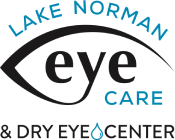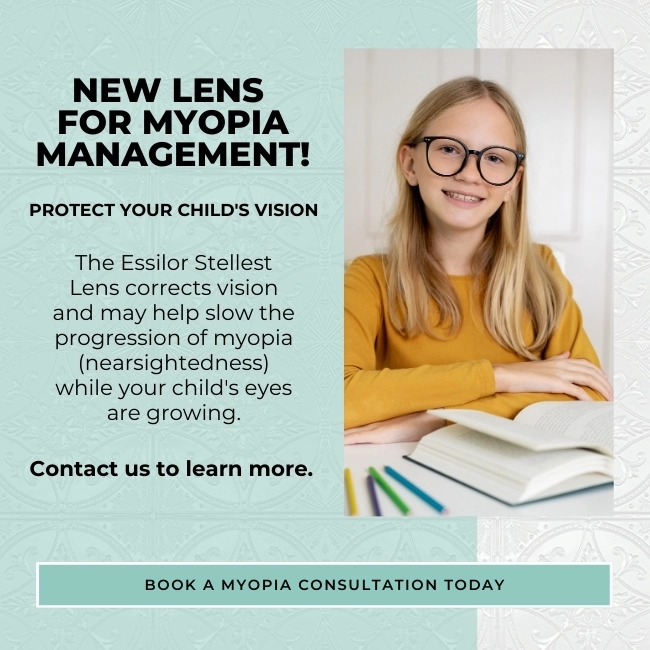If you’ve ever experienced the discomfort of dry, gritty, or itchy eyes, you’re not alone. Dry eye syndrome (DES) affects millions of people worldwide, and while it might seem like just a nuisance, untreated dry eyes can lead to more serious complications.
Understanding what causes dry eye syndrome is the first step toward finding the right treatment to relieve your symptoms. If you’re dealing with dry eyes, it’s important to schedule an appointment with Dr. Harris or Dr. Williams at Lake Norman Eye Care, who can help identify the root cause and recommend the best course of treatment tailored to you.
What Is Dry Eye Syndrome?
Dry eye syndrome occurs when your eyes do not produce enough tears or when the tears evaporate too quickly. Tears are essential for keeping the surface of your eyes lubricated, providing nutrients, and washing away debris. Without adequate lubrication, the eyes can become irritated, leading to symptoms like:
- A dry, scratchy, or gritty sensation
- Redness or inflammation
- Sensitivity to light
- Difficulty wearing contact lenses
- Blurry vision that clears with blinking
While dry eyes may seem like a minor inconvenience, they can affect your quality of life and, if left untreated, could cause long-term damage to your eyes.
Common Causes of Dry Eye Syndrome
Age-Related Changes
As we age, tear production naturally decreases, making older adults more susceptible to dry eyes. It’s common for those over 50 to experience some form of dry eye, particularly in women who may also be affected by hormonal changes during menopause.
Environmental Factors
Exposure to wind, smoke, air conditioning, and dry climates can cause tears to evaporate faster than they can be replaced. Spending long hours in front of digital screens (also known as “computer vision syndrome”) can contribute to dry eyes, as people tend to blink less while using devices.
Medications
Certain medications, including antihistamines, decongestants, antidepressants, and blood pressure medications, can interfere with tear production and lead to dry eye symptoms.
Medical Conditions
Dry eye can be a symptom of underlying health conditions such as diabetes, rheumatoid arthritis, lupus, or thyroid disorders. Autoimmune diseases like Sjögren’s syndrome can also specifically target tear glands, causing severe dry eyes.
Hormonal Imbalances
Hormonal changes, particularly during pregnancy or menopause, can affect the tear-producing glands. Birth control pills or hormone replacement therapy (HRT) can also contribute to dry eye.
Contact Lens Wear
Wearing contact lenses for long periods or not properly caring for them can disrupt tear film and contribute to dryness, discomfort, and irritation.
Blepharitis or Meibomian Gland Dysfunction
Conditions like blepharitis, which causes inflammation of the eyelid, or meibomian gland dysfunction (MGD), which affects the oil-producing glands in your eyelids, can disrupt tear quality. Without adequate oil in the tears, evaporation can occur more quickly, leading to dry eyes.
Surgery
Certain eye surgeries, like LASIK or cataract surgery, may temporarily disrupt tear production or change the shape of the cornea, resulting in dry eye symptoms.
Why It’s Important to Find the Underlying Cause
Since dry eye syndrome can stem from various causes, treating it effectively requires a clear understanding of what’s triggering your symptoms. For some people, lifestyle changes such as increasing hydration or using over-the-counter artificial tears may provide relief. However, for others, more advanced treatments may be needed to address the root cause, such as:
- Prescription medications to stimulate tear production or reduce inflammation
- Specialized eye drops that replenish oils in the tear film
- Punctal plugs to help retain moisture in the eyes
- Warm compresses and lid hygiene to treat blepharitis or meibomian gland dysfunction
Dr. Harris and Dr. Williams are experienced in diagnosing and treating dry eye syndrome by offering personalized care plans. Through a comprehensive eye examination, they can assess your tear production, eyelid health, and overall eye condition to determine the most effective treatment options for you.
Schedule an Appointment Today
If you’re experiencing any symptoms of dry eye syndrome, don’t wait until they worsen. The sooner you seek treatment, the sooner you can find relief and prevent potential complications.
Dr. Harris and Dr. Williams at Lake Norman Eye Care are here to help you get to the bottom of what’s causing your dry eyes and guide you toward the best solutions to restore comfort and protect your vision.
Contact us today to schedule an appointment and take the first step toward a life free from dry eye discomfort. Your eyes deserve the best care, and we’re here to provide it.



